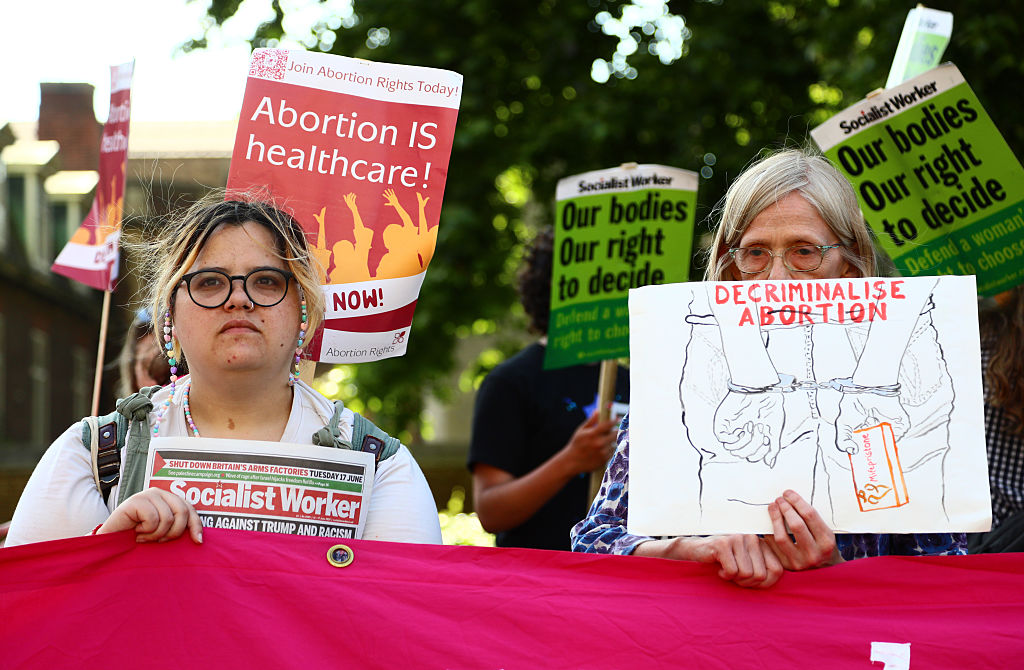How much do abortions cost? For many, it's already too much.
Although the right to an abortion has been enshrined in U.S. law for almost 50 years, the cost of the procedure has steadily risen and can now hinder women from obtaining care, according to new research from University of California San Francisco.
Abortion could become even more financially out-of-reach for millions of Americans if Roe v. Wade is struck down, which would force many women to travel beyond their home state to receive treatment.
The Supreme Court appears ready to overturn the landmark abortion rights decision, according to a draft opinion first published by Politico. If finalized, those rights would come down to state lawmakers, with 26 states either certain or likely to ban abortion, according to the the Guttmacher Institute, an organization that supports abortion rights.
A woman undergoing a first-trimester abortion in 2020 paid about $515 (on an inflation-adjusted basis) for the procedure — an increase of 8% from the median cost in 2017, the U. of California researchers found. Most people pay out-of-pocket for abortion care because of regulations that limit federal funds, including Medicaid, from being used to pay for it. Some states also bar insurance companies from covering the procedure.
Travel costs and lost wages can add hundreds of dollars more to the cost of seeking an abortion. Patients already typically pay ancillary costs to seek abortion care that can add up to more than $400 in transportation, lost wages, child care expenses and other costs, the study noted. In total, patients face out-of-pocket costs of almost $1,000 to afford a first-trimester abortion, the study concluded.
Meanwhile, being unable to afford reproductive care can have long-standing impacts on a woman's economic security, experts note.
"Reproductive and gender justice are central to bodily autonomy and economic security," said Shawn Fremstad, senior policy fellow at The Center for Economic and Policy Research (CEPR). The ability to have control over family planning choices has helped women secure job opportunities and financial security, Fremstad added.
Barrier to treatment
Even with abortion as a legal option across the U.S., abortion costs can create a barrier to treatment — a perhaps not surprising reality given that research also shows that fully a quarter of Americans struggle to pay for an emergency $400 expense, the authors of the study noted.
"Lack of financial resources can create an insurmountable barrier to abortion," they wrote. "For many people, the cost of an abortion can exceed the capacity to pay."
For instance, out-of-pocket costs for a first-trimester abortion in 2016, which then ran about $400, would have been "financially catastrophic" for households earning their state's median monthly income in 39 states, the study said.
Second-trimester abortions are even more expensive, with a median cost of $1,014 in 2020, the study found. Drug-induced abortion, which involves taking two medications, had a median cost of $537 in 2020.
Costs for abortion care could be increasing due to regulations as well as the impact of the COVID-19 pandemic, which resulted in widespread health industry staffing shortages and increased medical costs, the researchers noted.
Companies enter the fray
Some state lawmakers have already sought to restrict abortion rights, such as in Texas, which has banned abortions after six weeks of pregnancy — before many women even know they are pregnant.
In response to these laws, some big corporations have added travel benefits for workers who need to travel to seek medical care, including abortions.
Citigroup added the travel benefit to its workplace offerings after Texas and other states enacted restrictive reproductive health care laws. And Amazon on Monday told its U.S. workers it would reimburse up to $4,000 in travel costs for medical procedures, including abortions.
If Roe v. Wade is struck down, workers employed by some deep-pocketed businesses will likely have financial support to travel to states that are expected to preserve abortion rights, such as California or New York. But low- and middle-income women in states where abortion could become illegal, who don't have access to such workplace benefits could face financial obstacles.
"History shows that when abortion care is restricted, it is Black and Hispanic people who have the greatest challenges obtaining care," the researchers noted. "Before the Roe v. Wade decision in 1973, making abortion legal throughout the country, middle-class White women in some states were able to secure a legal abortion or travel out of the country."



